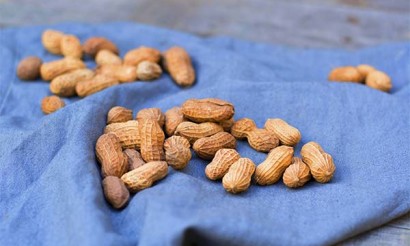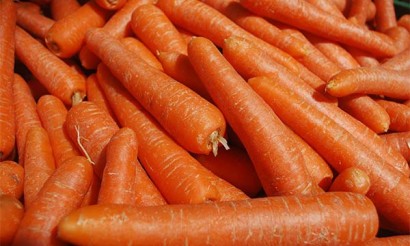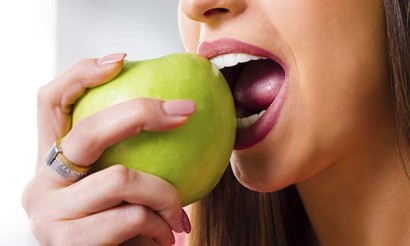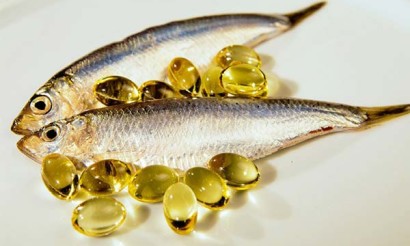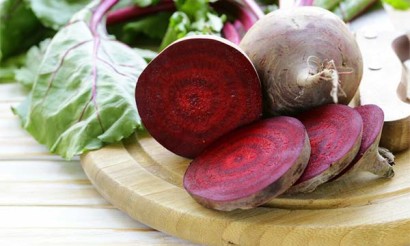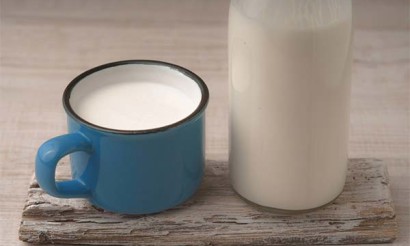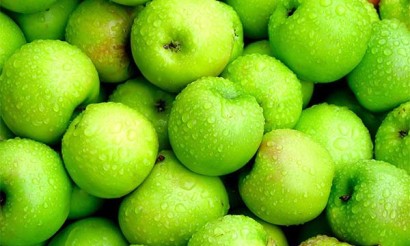Pears during breastfeeding: benefits and harms
The pear is considered almost the most famous and popular fruit around the world. Currently, we know about three thousand varieties of such a juicy and useful product. The homeland of this fruit is considered to be the South Asia. Depending on the variety, pear may have a variety of colors, differ in density of skin and juiciness of flesh. However, they are all characterized by a sweet and tart flavor.
- Chemical composition of pears
- Can pears be eaten while breastfeeding
- In the first month
- Second month
- Third month
- In the fourth month
- How to eat pears properly
- How much you can eat per day.
- You can eat them at night and on an empty stomach.
- The benefits of pears during breastfeeding
- Are baked pears useful?
- Pear compote when breastfeeding
- Can a breastfeeding mother drink pear juice?
- What are the dangers of pears during lactation?
- What is the right way to introduce pears into a nursing mother's diet?
- Pears in cosmetology
Pears can be eaten both raw and baked. In addition, it is recommended to make juices from this fruit, use it to obtain various desserts, salads, pie fillings. Undoubtedly, such a fruit has a lot of useful properties. But as for its impact on the female body during breastfeeding and on the health of the baby, in this case there are doubts about its use in food. To answer the question whether a nursing woman is allowed to eat a pear, you should consider the healing qualities of such a product.
Chemical composition of pears
In 100 g of a pear, there are about 40 kcal concentrated. The composition of such a fruit contains fructose, which has a positive effect on the functioning of the pancreas. There is thiamine, ascorbic acid, niacin, folic acid and tocopherol. Of the minerals in such a product is found phosphorus, potassium, iodine, iron.
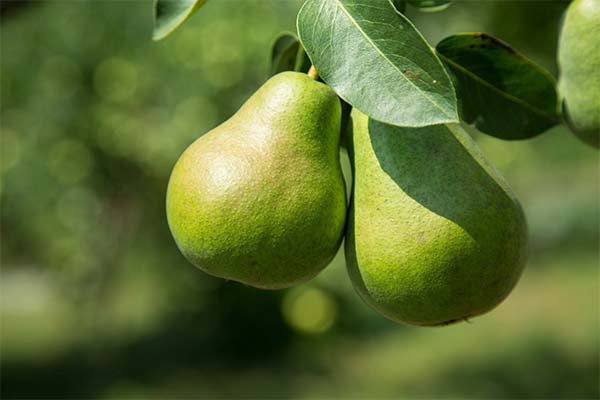
The pear also contains essential oils that can suppress inflammation and strengthen the immune system. Fiber gives a sense of satiety, while reducing blood cholesterol levels. Such a product is characterized by the presence of plant fibers, which prevent the possibility of salt deposits in the kidneys and liver. This group of substances also stimulates the excretion of bile.
It should also be noted that phytosterol is found in the fruit of this plant crop. This unique substance helps to neutralize bad cholesterol, as well as to burn excess fat in the body.
Of useful substances in the pear contains flavonoids. This group is acids of plant origin. They have powerful antioxidant properties.
Sucrose here is much less compared to the apple. Although sweet varieties can contain quite high levels of sugar.
The pear is a multivitamin fruit, which belongs to the dietary products. When used regularly, the vitamins it contains have a diuretic, anti-inflammatory, choleretic effect. In addition, they increase the body's resistance to various infections, eliminate depression, and protect the skin from premature aging.
Vitamin K, found in this fruit, reduces the likelihood of atherosclerosis. Tocopherol takes part in stabilizing the hormonal background.
Vitamin B9 is an important component for women both during pregnancy and after birth, it promotes the correct formation of all organs and systems of the child.
Can I eat pears while breastfeeding?
As noted above, there are many known varieties of such a honey fruit. However, all these varieties are united by a high concentration of fiber in the rind. It increases the peristalsis of the intestine, contributing to its purification. For this reason, most mothers try not to include pear in their diet, so as not to increase gas formation in the body of the child.
From a scientific point of view, there is no connection between colic and the young mother's diet. This is explained by the fact that not all valuable and nutritious elements from the food consumed by the woman get into the mother's milk. However, if too much of a product is consumed, concentrations of certain substances can still get into the milk, which can cause unpleasant consequences.
The baby may be anxious if the mother ate a poor-quality product treated with chemicals. To exclude the appearance of discomfort in the body of a nursing woman and baby, pears should be carefully washed. Some mothers prefer to remove the skin of the fruit. It is not recommended to do this, because this is the part of the fruit that contains useful and necessary fiber for normal digestion.
Pear is often included in the human diet. Many people know the effect it has on the body. If previously when introducing such a product in food no problems have arisen, most likely, during breastfeeding the girl will also have no unpleasant feelings. The only thing that breastfeeding women encounter in some cases is discomfort in the intestinal area.
It is best to eat the pear fresh. This will help to get the most valuable substances from it. However, if there are concerns that the baby may get diarrhea or diathesis, you do not need to take the risk. In that case, it is better to bake the fruit in the oven. Such a heat treatment of the fruit allows you to preserve the entire complex of minerals and vitamins.
In addition, on the basis of a pear you can prepare juices, compotes, jams and other culinary products, which are allowed to use during lactation. In this case, you only need to observe moderation. Given the fact that in the daily diet of a woman should be present no more than 300 grams of fruit, to get the benefits and enjoy the taste of pears, it is enough to eat one medium-sized fruit.
In the first month
A newborn baby who is breastfed is quite susceptible to various irregularities in the mother's diet. In the first four weeks of his life, all the gastrointestinal organs continue to develop, so the ingestion of certain substances in the milk after the consumption of a particular product can lead to colic. In this case, the baby becomes restless, cries a lot, sleep patterns are disrupted. There may also be a bloating of the abdomen, impaired stool, that is, the fruit in this creeps or laxes. In addition, regurgitation often occurs.
In addition, the child may fall behind in weight gain. Consumption of certain foods, including pear, sometimes leads to allergic reactions. As a result, the child may have a skin rash, itching, peeling.
In the second month.
Over time, the infant's digestive system becomes more advanced. However, even this is still not enough to cope with some new substances.
From the second month of lactation, a woman can try a pear. However, for the first time it is allowed to try thermally processed fruit, e.g. baked in the oven or in the form of compote. Heat-processed fruit helps to reduce the level of fiber, and therefore they will be easier to digest. This contributes to the fact that the negative effects on the digestive tract of the baby are reduced. If after the use of such a fruit did not show any side effects, the next time you can try a fresh pear. In this case, you should first eat a small piece, and then for a few days to monitor the reaction of the child's body. If there are no adverse reactions, you can gradually increase the portion of the product to 2 fruits per day. And in case of allergies, bloating or usual anxiety you should postpone the inclusion of pears in your diet for 2-3 weeks.
It is necessary to remember that you should not eat pears on an empty stomach, wash them down with water or eat them together with meat products, otherwise you will not avoid stomach problems.
It is also recommended to peel pears from the skin and the top layer of pulp. This is due to the fact that often in this part of the fruit accumulate various toxins from the soil or during the processing of the tree.
In the third month
With the beginning of the third month of lactation, the likelihood of colic in the child decreases, so the fruit under study can be freely introduced into the menu. It is better to eat it fresh, in small portions. As for canned fruit, such processing is forbidden.
In the fourth month
If a nursing woman has eaten a fresh pear, and the baby's body responded positively to it, from the fourth month you can already use various dishes based on this fruit. This includes jams, jams, and canned fruits. At the same time, the young mother should take into account that sweet products should not prevail in her diet.
How to eat pears correctly
First of all, you need to remember that you should not eat the fruit on an empty stomach, because the rind contains woody fiber, which can damage the mucous membrane of the stomach or intestines. Drinking it should also be avoided due to the fact that it does not activate the fermentation process in the body, which usually results in bloating. Drinking liquid after eating a pear is allowed only after two hours.
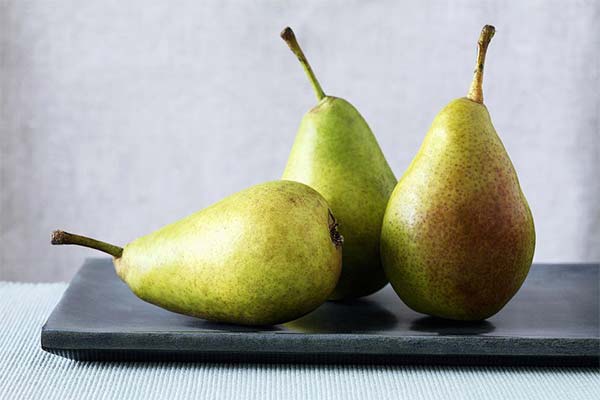
In order not to have pain in the stomach, you should not eat this product after a full meal. After a solid meal, at least half an hour should pass. Only after that can you eat fruit.
During lactation in the menu of a woman should be present only juices made from home pears grown in her garden. As for factory-made products, even despite the inscription on the package, guaranteeing one hundred percent naturalness, the use of preservatives is a prerequisite for making such a drink in industrial conditions.
Pear is not a product that can provoke an allergic reaction. Pediatricians allow supplementing the diet of mothers with this fruit. However, this should be done while constantly monitoring the reaction of the baby's body, because no matter how safe the product is, there is a possibility of individual intolerance. In addition to a large number of vitamins, it contains fiber, which restores normal intestinal function, eliminating constipation, which is often faced by women in the postpartum period.
It is also worth noting that the pear belongs to the products used as the first complementary food. Juices and decoctions based on this fruit are introduced after apples and vegetables. In this case, you also need to monitor the condition of the infant. If there were rashes, stool problems, bloating or itching, from this culture will have to give up for a while. The baby should always be taken to the doctor. Self-treatment in this situation can be dangerous.
How much you can eat per day
Excessive consumption of pears can cause great harm to the body. As noted above, a breastfeeding woman is allowed to eat about 300 g of different fruits per day. However, this does not mean that pears should constitute the daily requirement of the body for such products. In order not to harm the baby, a young mother can eat up to 150 grams of fruit per day. At the same time, it is not recommended to eat it every day. In order for the body to get the necessary benefits from the fetus, it is enough to include it in the diet no more than 2-3 times during the week. It must be remembered that this rule is valid only if the child responds positively to it.
You can not eat overripe or immature pears. They can contain a large amount of acetaldehyde, which causes digestive upset. Unripe fruits additionally contain wood pulp, which causes heaviness in the stomach.
Can I Eat Pears at Night and on an empty stomach?
Fresh pears should not be eaten on an empty stomach, in order to prevent injury to the mucosa of the digestive tract. In addition, in this case, the compounds that make up the fruit can get into breast milk in large quantities. You can eat the product only after half an hour from the meal.
It is also not recommended to eat a pear at night. This is due to the fact that during sleep, the stomach slows down its work, so the product will stay in the gastrointestinal tract for a long time, irritating it. It should be remembered that it is better to eat fruit in the first half of the day, because eating it in the evening contributes to the fact that it is converted into glucose, which increases blood sugar levels.
The benefits of pears during breastfeeding
The pear can bring a lot of benefits to a woman during lactation.
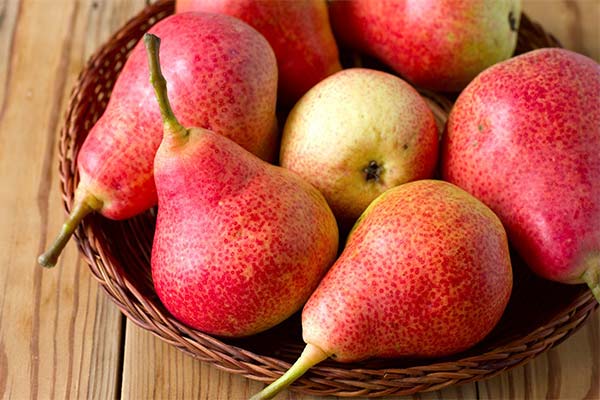
- First, it is quite nutritious and at the same time low-calorie product. It contains a lot of cellulose, which leads to rapid satiety.
- Secondly, this fruit contains essential oils that strengthen the body's defenses and have a positive effect on the nervous system, eliminating depression and inflammatory processes.
- The pear fruit restores metabolic processes in the body, adjusting the activity of internal organs and the digestive tract, including. It is noted their devastating effect on microbes and pathogenic microflora, which develops putrefactive processes in the intestines.
- Ascorbic acid in pear strengthens blood vessels, giving them strength and elasticity.
- Folic acid is involved in the process of hematopoiesis. This product tones the body, activates the synthesis of red cells in the blood. In addition, pear improves appetite and relieves fatigue. Thanks to the presence of iron, the product ensures rapid healing of wounds.
- Potassium contained in the fruit regulates heart activity, restores cells, and normalizes blood cholesterol levels.
- The high concentration of fiber in the peel stabilizes intestinal peristalsis and is a means of acting as a prevention of gallstone formation in the gallbladder.
- To maintain the beauty of hair, dermis and nails will help sulfur, which is present in the pear.
- It should also be noted that this product contains the daily requirement of cobalt. This mineral ensures the proper functioning of the thyroid, is necessary for the production of hemoglobin and better absorption of iron.
Are baked pears good for you?
In the baked form, the studied product is recommended to include in the menu when breastfeeding. In this form, the fruit contains a lot of nutrients. In addition, heat-treated fruit is easier to digest by the gastrointestinal tract.
When consuming baked pears, a young mother has an opportunity to get rid of constipation. During the preparation of such a treat, it is not recommended to add sugar. The fruit has its own pleasant taste. Without the additional use of glucose, it will be much easier for a woman to return to her former forms.
Compote from pears when breastfeeding
In order to maintain the normal functioning of all organs and systems of the body during the pregnancy, a woman needs, in addition to energy, a large amount of fluid, as well as vitamins, carbohydrates and proteins. All this can be found in compotes. Therefore, during lactation, the composition, prepared at home, will be very useful.
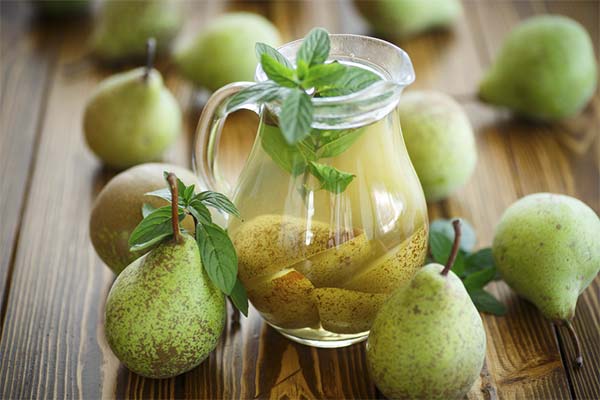
This drink is considered to be universal, because, for the most part, it is hypoallergenic. When using it, no problems have been identified, except for hereditary intolerance of certain components.
Kompot is allowed to include in the diet no earlier than one month after the baby's birth, when the mother's body has already come to normal. If by this period there were no allergic rashes, you can drink kompot. Such a drink can be added to your menu no more than 2 times a month.
As for the pear, it should be noted that it is much sweeter than apples, but it has less sugar and fewer calories, therefore, too. Pear compote will help to improve blood circulation, normalize digestion.
The recipe for making such a composition is quite simple. Pear is characterized by a high sugar content. In addition, it has a soft skin. So, you need about 1 kg of fruits carefully washed, chopped and placed in a saucepan. Here add 3.5 cups of water and 1 big spoon of sugar. Boil the mixture for a quarter of an hour, and then strain.
There are several recommendations regarding the consumption of compote during breastfeeding. If you follow these rules, you can not worry about the fact that the newborn will be harmed.
- To begin with, a woman should be absolutely sure that the products used to make the drink are fresh and of good quality.
- Also, it should be remembered that the less sweetener added to the product, the better it affects the mother and her baby.
- Consuming compote and other drinks, you need to remember about plain water. For example, during lactation a girl should drink from 2 liters of liquid a day, and half of this amount should be plain water.
- During the GV can not immediately prepare a compote from a new fruit. If you intend to make a drink from pears, it is recommended first to eat a small amount of this fruit in its fresh form. If after the use of such products, the woman feels good, the child does not have a rash, the compote is allowed to use.
- It is also important to consider that the most useful is a freshly prepared compote. In this case, it is recommended to prepare it in the morning and drink it during the day. 1 liter of such a compote per week will be enough.
- It is not recommended to drink compote often in large quantities, otherwise they can be harmful. Such drinks allow you to recover faster after childbirth, improve the immunity of the young mother and the newborn baby. The main thing is to use fresh and high-quality products, as well as to observe the norm.
Is it possible to drink pear juice to a nursing mother
Concentrated pear juice during lactation is not recommended to use due to the fact that such a drink has a high degree of caloric content. It contains a large amount of sugar. If you include such a composition in the diet of a woman breastfeeding, it should be diluted with water and drunk in a limited amount. Since a young mother is allowed to eat 1-2 pears, there are many more in a glass of undiluted juice.
What are the dangers of pears during lactation
Pears are among the safe products necessary to maintain the health of the mother and young child. But from the use of such a useful product during lactation will have to be abandoned if the baby is less than three months old or the infant suffers from frequent colic, diathesis. Also, if the baby has other allergic reactions, it is necessary to exclude the fruit from the mother's diet.
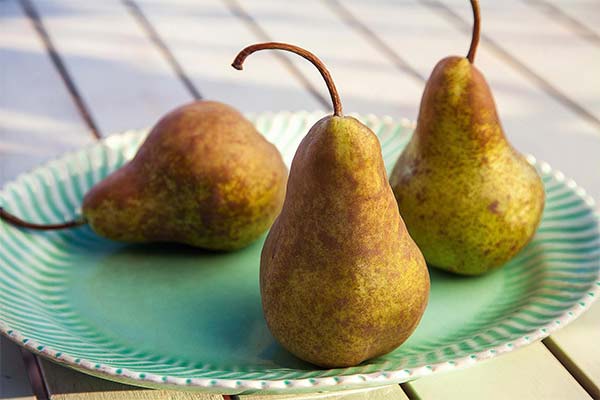
For the woman herself, the product is dangerous only in case of individual intolerance of any components. If a nursing girl will abuse pear fruits, it can have a negative impact on the condition of the child. This is usually manifested by skin rashes, itching, redness and various digestive disorders.
The fiber included in pears helps to cleanse the intestines. However, the same component is recommended to exclude from the girl's diet, as insoluble dietary fiber can cause increased gas in the infant.
It is also necessary to exclude this product from the menu, if an allergic reaction to it has already been manifested before. To protect yourself and your baby from the negative effects of fresh fruit, you can use them thermally processed, in the form of compote, jam, or baked in the oven. And, of course, it is necessary to keep in mind the permissible rate.
In other cases it is necessary to consult with a specialist.
How to introduce pears into the diet of a nursing mother
When breastfeeding, pears can be introduced into the diet only after the baby reaches the age of three months. Mom should follow a few simple rules.
- The first thing to remember is that any new product is introduced into the menu gradually. At first, you need to eat a small piece of fruit, and then for a few days to monitor the condition of the baby. If there were no side effects, the next time you can eat half a pear.
- Thermal treatment also plays an important role. Start eating pears is better in baked form or in the form of compote made from dried fruit.
- It is also necessary to choose the right fruit. Of course, it is better to use fruit harvested from your own garden plot. But if this is not possible, you should buy fruit that grows in the same area. This will reduce the risk of negative reactions and allergies. It is better to refuse such a product in winter, since they may contain nitrates and other chemicals that were used during cultivation. In addition, they can be treated with wax and other dangerous components to extend the shelf life.
During lactation, the health and overall health of the baby depends on the mother's diet. The use of forbidden products has a negative effect on the digestive system. If at the same time there are symptoms of allergic reactions, dyspepsia, it is necessary to immediately contact the pediatrician, who will determine whether it is a functional disorder or a probable pathology.
Pear in cosmetology
With the birth of the baby, the mother must pay special attention to her diet. This is due to the fact that all the food eaten will certainly affect the health and well-being of the baby. However, with the birth of a child a woman should not forget about her appearance. After childbirth, most women dream to regain their former figure. It is also necessary to devote time to various cosmetic procedures, which can be carried out at home.
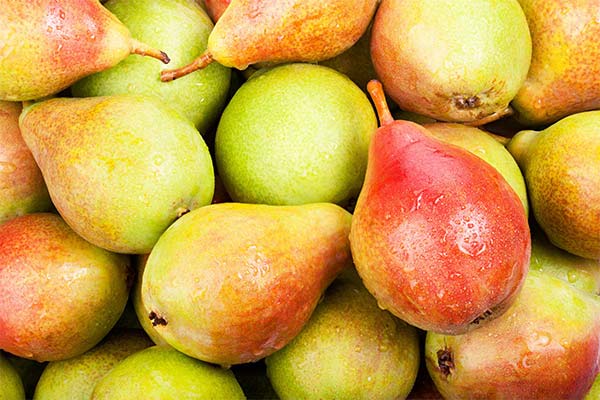
Pear has many healing properties, so it has found wide application in the cosmetic field. Such a product retains its useful characteristics even after heat treatment.
Pear fruits are included in various creams, masks and scrubs. Such a component is used to prepare anti-aging cosmetics, as it increases the elasticity and firmness of the skin, narrows pores, smoothes fine wrinkles, gets rid of acne, reduces inflammation, has a bleaching, toning and refreshing effect. In addition, with the help of cosmetics based on pears you can solve the problem of dandruff by rubbing the usual fruit juice in the hair roots. The fruit has an anti-inflammatory, anti-inflammatory, anti-wrinkle effect on the skin, and it can also be used to treat dandruff.
This fruit has anti-inflammatory, tonic effect. In addition, it strengthens blood vessels. For this reason, this product has found widespread use in obtaining face masks at home. With a similar composition, you can whiten the skin, restore its turgor and elasticity. Means from the pear will help to cure acne and prevent the appearance of acne. They also help to strengthen capillaries on the face, preventing the development of couperose and pigmentation. The latter problem is most often faced by women after the end of the gestation period.
Since pear fruits have a rich chemical composition, they can be used to prepare lotions, masks and creams that have a whitening effect. It is also noted that such compositions have an exfoliating effect.
- Pear in combination with almond oil eliminates sagging muscles, smoothes and tones the skin.
- If you combine pear juice and buckwheat flour, you get a natural remedy that can be used for cleansing and tightening pores. If you add additional cream and starch to this composition, the resulting mask is suitable for aging skin.
- It should also be noted that the puree obtained from pears, perfectly eliminates acne, relieves inflammation and has a tightening effect. In addition, this composition allows you to remove dead skin cells.
- An excellent remedy for the care of any type of hair are masks based on pears. At home, it is quite easy to prepare restoring and strengthening cosmetics for damaged strands.
It is also known that you can use not only the fresh juice of the pulp, but also pear seeds for hair beauty. This fruit contains a lot of pectin, acids, retinol, tocopherol and ascorbic acid. To make your hair voluminous, you can make a mask based on the seeds and peels of the fruit. Both components should be crushed to a mushy consistency, and then mixed with a small amount of swollen gelatin. The resulting composition is applied to the entire length of the hair. The mask should act for at least 15 minutes. After the specified time, the composition should be washed off with a shampoo.
«Important: All information on this site is provided solely for informational purposes. Before applying any recommendations, consult a specialist. specialist. Neither the editors nor the authors shall be liable for any possible harm caused by materials."

